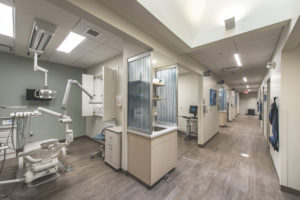This article was updated on July 14, 2025.
PROVINCETOWN — This spring, the U.S. House of Representatives took a cue from the 27 Republican-controlled states that have restricted gender-affirming health care for minors and put an even more expansive provision into its draft of the “One Big Beautiful Bill Act” — one that would prevent Medicaid from paying for gender-affirming care for both children and adults.
Thirty percent of Massachusetts residents are on MassHealth, the state’s version of Medicaid, and withdrawing coverage for gender-affirming care for adults would have been one of the most direct attacks that transgender people on the Outer Cape have faced in decades.
That provision was removed from the Senate’s version of the legislation because of a procedural issue before the bill became law on July 4.
By that time, the Mass. Senate had already passed an updated Shield Act to enhance statewide protections for transgender health care and the providers who administer it.
The state’s original Shield Act was passed three years ago. The “Shield Act 2.0” would build on it by preventing state agencies or law enforcement from cooperating with any state or federal investigations of gender-affirming care delivered in Massachusetts. The legislation is now pending in the state House.
The state’s fiscal 2026 budget, which Gov. Maura Healey signed into law on July 4, also contains a new Affirming Health Care Trust Fund that aims to pay for transgender health care services in the event that federal funding is cut off.
State Rep. Marjorie Decker of Cambridge, who helped develop the proposal, told the Independent that she spoke with state Dept. of Public Health Commissioner Robbie Goldstein, Cape and Islands state Sen. Julian Cyr, and state Rep. Samantha Montaño of Jamaica Plain before filing a budget amendment to establish the trust fund in April.
“There’s a Sophie’s choice that they’re going to present to our hospitals: ‘If you continue to provide gender-affirming care, then we will threaten to withdraw hundreds of millions of dollars of federal funding,’ ” said Decker.
The new trust fund will be administered by the Dept. of Public Health..
“Massachusetts is in a position to pivot and provide gender-affirming health care outside the hospital system” if hospitals are prevented from providing that care due to federal rules, said Decker. The trust fund won’t change health care financing in the present, Decker said, but having the fund available means “if we decide we have to, we’re ready to do that.”
“Never before have we seen such vengeful politics attacking the most vulnerable in our community,” Cyr told the Independent. “In Massachusetts, we’re very clearly and firmly rejecting the hate and rejecting those policies.”
Community Health Centers
Dr. Damian Archer, CEO of Outer Cape Health Services (OCHS), told the Independent on June 30 that federally qualified community health centers such as OCHS must treat all patients regardless of their ability to pay. If Congress were to bar Medicaid from covering gender-affirming care, Archer said, OCHS would still have a mandate to provide that care.
“If the provision of care is not illegal and is a medical necessity, then we still have an ethical obligation to guide that patient to treatment,” Archer said. “And the state is looking into ways to ensure that folks who need this care are able to get it.”
Archer said that of the roughly 20,000 patients at OCHS, about 60 have gender dysphoria — the medical term for an incongruence between one’s experienced or expressed gender and the one assigned at birth.
“Some of those patients receive gender-affirming care, but not all,” Archer said, “and not all may be receiving gender-affirming care with us.”
Depending on the patient’s needs, gender-affirming care at OCHS can include psychological support, hormone-replacement therapy, and other medications prescribed in consultation with endocrinologists, Archer said, with the cost of such care ranging from $70 to $4,000 a month.
Dallas Ducar, executive vice president of the federally qualified community health center Fenway Health in Boston, told the Independent that Fenway has been “scenario planning” for funding disruptions at the federal and state level.
“As public funding is at risk, private philanthropy becomes a much more essential lifeline,” Ducar said. “We’re asking funders to see this moment as an investment in civil rights and public health.”
Ducar told the Harvard Crimson in April that patients from over 30 states have come to Fenway for gender-affirming care. Although this “puts a strain on capacity,” she said, it’s “part of our organizational DNA” to provide “high-quality, evidence-based affirming care.”
Archer said that beyond funding cuts, his fear is that something akin to the Hyde Amendment — which prevents organizations that receive federal money from using it for abortion services — could eventually make it illegal or extremely difficult to provide gender-affirming care at community health centers.
“A restriction on any federal funding being used to support anyone with a specific diagnosis or health care need — that would have to come through Congress as a law, and that’s not what we’re seeing here in the reconciliation bill,” Archer said. “This has been a different approach to denying access to care — cutting off the payment for services but not making it illegal to provide services.”
Back on Beacon Hill
State Sen. Cindy Friedman, who filed the Shield Act 2.0 legislation in April, told the Independent that the original Shield Act in 2022 had largely focused on preventing local police and courts from sharing information on health care providers with red-state prosecutors.
This year’s rewrite would order every state and local agency — from MassHealth to the Registry of Motor Vehicles — to refuse data or manpower to any out-of-state or federal investigation of care that is legal in Massachusetts.
The new bill would also allow clinics to prescribe hormones under a health care practice’s name rather than an individual doctor’s, a protocol already adopted by New York, Maine, Vermont, and Washington for prescribers of abortion drugs like mifepristone.
If the Shield Act 2.0 passes the state House, Massachusetts would become the second state in the U.S., after Vermont, to extend this kind of anonymity to gender-affirming care.
“Insurance still gets [the information about the provider],” Friedman said. “It’s just not on the label” of the medication.
Cyr told the Independent there is still more to do — including maintaining access to the Trevor Project’s anti-suicide hotline for LGBTQ youth, which was connected to the federal anti-suicide hotline before the Trump administration severed that link on June 18.
According to the New York Times, about half of the Trevor Project’s 500,000 incoming messages per year arrived through that federal hotline. Cyr said that staff at the Trevor Project told him that about 30 calls per day were coming through that federal line from Massachusetts residents.
“We’re trying to figure out how we can continue to provide those services to residents of Massachusetts,” Cyr said.
The aim is to ensure “that trans people will continue to access care and services in Massachusetts regardless of what happens in Washington,” Cyr said.
Editor’s note: An earlier version of this article, published in print on July 10, incorrectly reported that the state commissioner of public health could charge a fee to commercial health insurers to ensure that the Affirming Health Care Trust Fund remains solvent. That provision did not make it into the final state budget.



